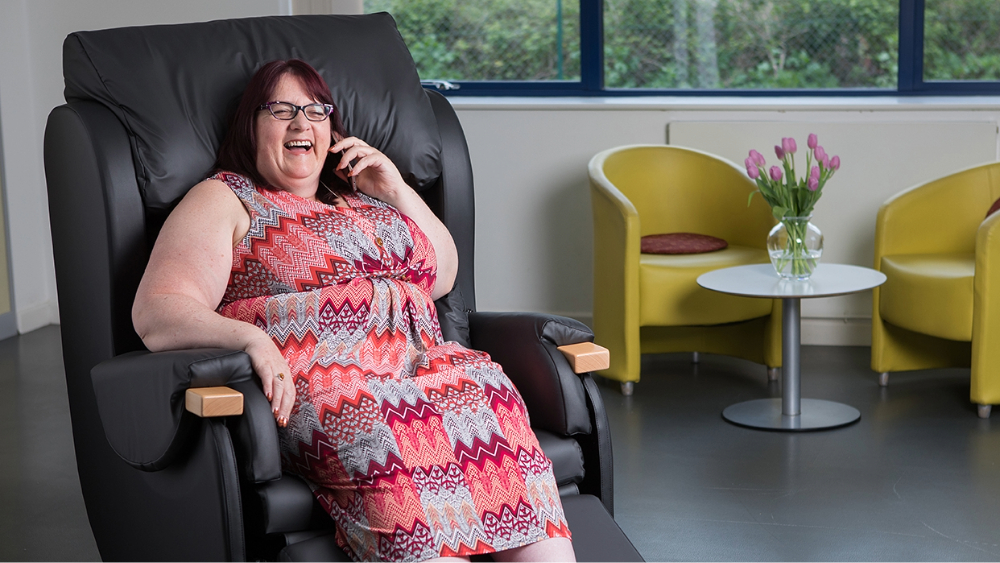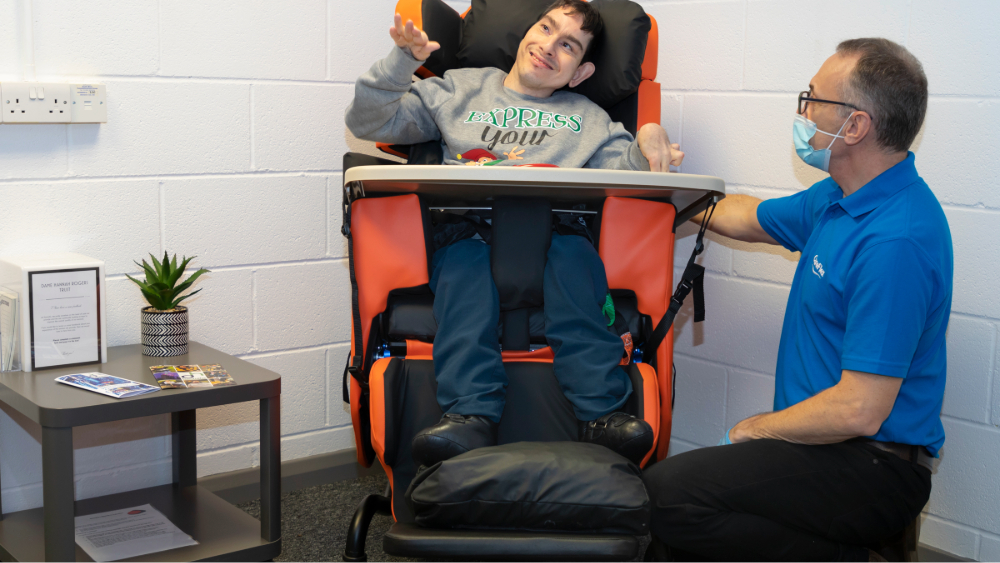Huntington’s disease is a complex neurodegenerative disorder that progressively impairs movement, cognition, and behaviour. As the disease advances, individuals often experience difficulties with posture and muscle control, leading to challenges in seated positioning, comfort, and safety. In such cases, specialist seating solutions are pivotal in enhancing health and wellbeing by providing optimal support, stability, and pressure management. This blog post delves into the unique needs of individuals with Huntington’s disease and explores how specialist seating can offer significant benefits in managing symptoms and improving overall quality of life.
Understanding Huntington’s Disease
Huntington’s disease is a hereditary condition caused by a faulty gene on chromosome 4. It leads to the progressive breakdown of nerve cells in the brain with gradual degeneration of parts of the basal ganglia – the information processing centre. Subsequently, this affects how the brain organises and regulates information it receives associated with movement, cognition, and emotional regulation. Symptoms typically manifest between the ages of 30 and 50 years and worsen over time, significantly impacting an individual’s ability to perform daily activities independently.
Challenges in Sitting for Individuals with Huntington’s Disease
Individuals with Huntington’s disease often experience a range of motor and cognitive impairments that affect their seated posture. These challenges may include:
- Postural instability: Motor impairments make it challenging for individuals to maintain optimum upright midline positioning without support.
- Chorea: Involuntary flowing movements that cannot be suppressed can impair pelvic positioning.
- Athetosis: Movements can progress to more pronounced writhing motions impacting on postural control.
- Dystonia: Uncontrollable muscle spasms can cause pain and affect range of movement at the joints.
- Fatigue: Difficulty managing energy levels can significantly impact on function and independence.
- Pressure ulcers: Prolonged periods of sitting can increase the risk of pressure ulcers, especially for individuals with limited mobility and sensation.
- Postural deterioration: In the later stages of the disease individuals can adopt more massed flexion posturing with the development of an increased thoracic kyphosis.
- Safety and security: A combination of the above challenges can make it difficult for individuals to remain secure within the chair, leading to increased risk of falls and injury to themselves and their caregivers.
- Memory loss and attention deficit: Cognitive changes can also significantly impact on seating tolerance and compliance with equipment.
The Importance of Specialist Seating and Huntington’s Disease
Specialist seating solutions are designed to address the unique needs of individuals with Huntington’s disease, providing support and comfort to enhance quality of life. These seating systems offer benefits, including:
- Customised support: Specialist seating can be tailored to the individual to accommodate their size and shape, promoting proper alignment and postural control.
- Pelvic stability: Chair functions and accessories, can further stabilise the body segments, encouraging normal movement patterns and managing energy levels.
- Function: Trunk and head support is imperative for functional ability, including safe eating and drinking to reduce the risk of aspiration or choking.
- Safety: A ramped or angled base, graduated at the back, will position the pelvis lower than the knees to promote security within the chair, minimising the risk of falls and injuries.
- Enhanced functionality: Adjustable features allows the individual and/or their caregivers to reposition for comfort and pressure redistribution.
- Pressure care: Pressure-relieving features help distribute weight evenly, reducing the risk of pressure ulcers and improving circulation.
- Psychological benefits: Comfortable and supportive seating promotes relaxation, reduces anxiety, and contributes to overall emotional wellbeing.
Choosing the Right Seating
When selecting a seating solution for someone with Huntington’s disease, it is essential to ensure personalised care by considering their level of active movement, functional abilities, safety factors, cognitive state, and social situation. A multidisciplinary approach involving Health & Social Care Professionals such as Occupational Therapists, Physiotherapists, and Speech & Language Therapists can help comprehensively assess the individual’s requirements and determine the most suitable seating prescription through a true holistic approach. The ultimate objective is compliance with the seating system.
How Can CareFlex Help?
It is evident that specialist seating is crucial in enhancing comfort and safety for individuals with Huntington’s disease. Through meticulous design and product development, CareFlex seating solutions address the unique challenges associated with the disease, empowering individuals to maintain optimal posture, reduce discomfort, and participate more fully in daily activities to improve health and wellbeing.
CareFlex have a range of seating for individuals with Huntington’s disease. Contact us today to see how we can help, and to stay updated on an exciting new product!



